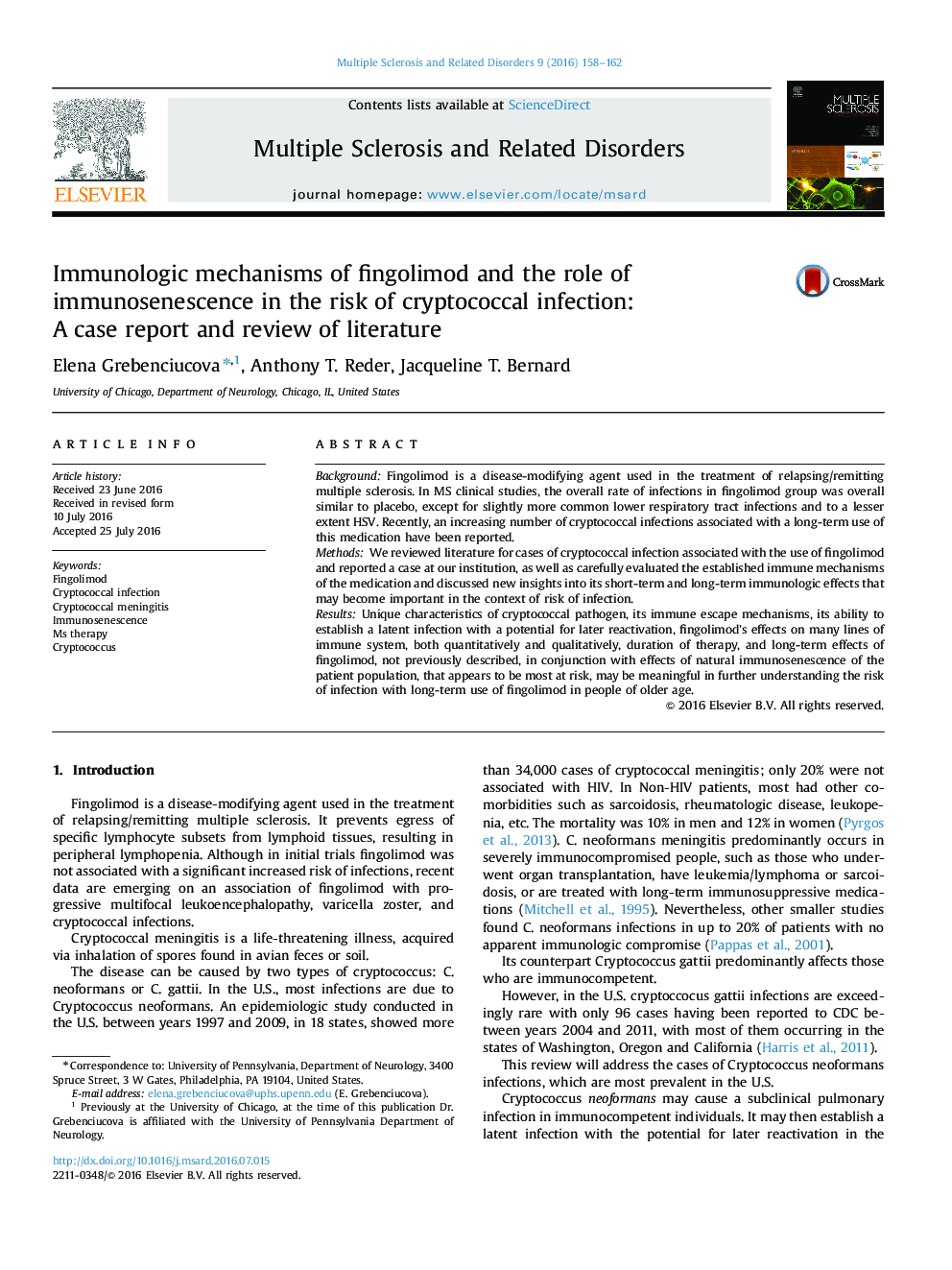| Article ID | Journal | Published Year | Pages | File Type |
|---|---|---|---|---|
| 5912135 | Multiple Sclerosis and Related Disorders | 2016 | 5 Pages |
â¢Cases of cryptococcal infection in those treated with Fingolimod may not be sporadic.â¢Those patients who are in their 50-60s may be at the highest risk.â¢Long-term use of Fingolimod induces immunosenscence-like changes in T cell subsets.â¢Due to natural immunosenescence, age may be critical in risk stratification.â¢Cryptococcal antigen monitoring may be of predictive value in high-risk patients.
BackgroundFingolimod is a disease-modifying agent used in the treatment of relapsing/remitting multiple sclerosis. In MS clinical studies, the overall rate of infections in fingolimod group was overall similar to placebo, except for slightly more common lower respiratory tract infections and to a lesser extent HSV. Recently, an increasing number of cryptococcal infections associated with a long-term use of this medication have been reported.MethodsWe reviewed literature for cases of cryptococcal infection associated with the use of fingolimod and reported a case at our institution, as well as carefully evaluated the established immune mechanisms of the medication and discussed new insights into its short-term and long-term immunologic effects that may become important in the context of risk of infection.ResultsUnique characteristics of cryptococcal pathogen, its immune escape mechanisms, its ability to establish a latent infection with a potential for later reactivation, fingolimod's effects on many lines of immune system, both quantitatively and qualitatively, duration of therapy, and long-term effects of fingolimod, not previously described, in conjunction with effects of natural immunosenescence of the patient population, that appears to be most at risk, may be meaningful in further understanding the risk of infection with long-term use of fingolimod in people of older age.
